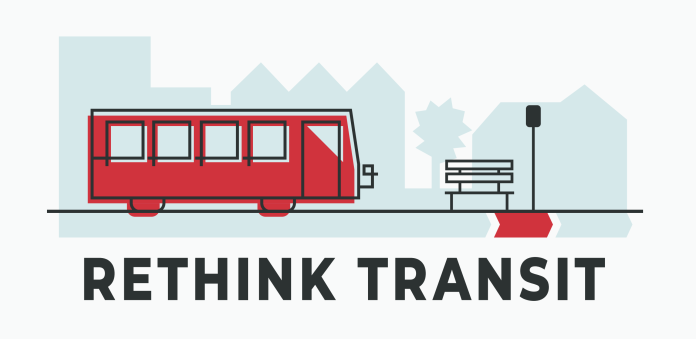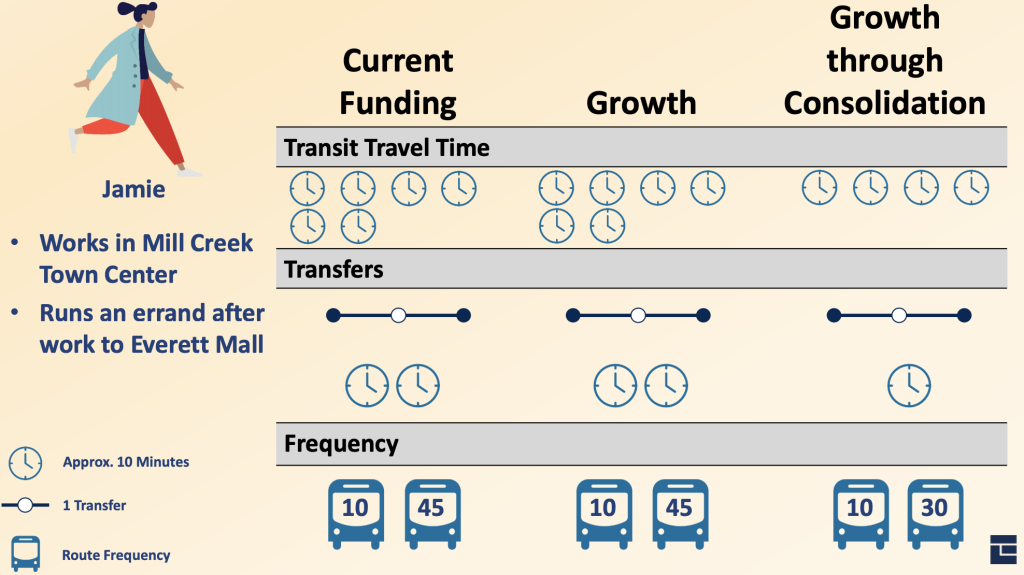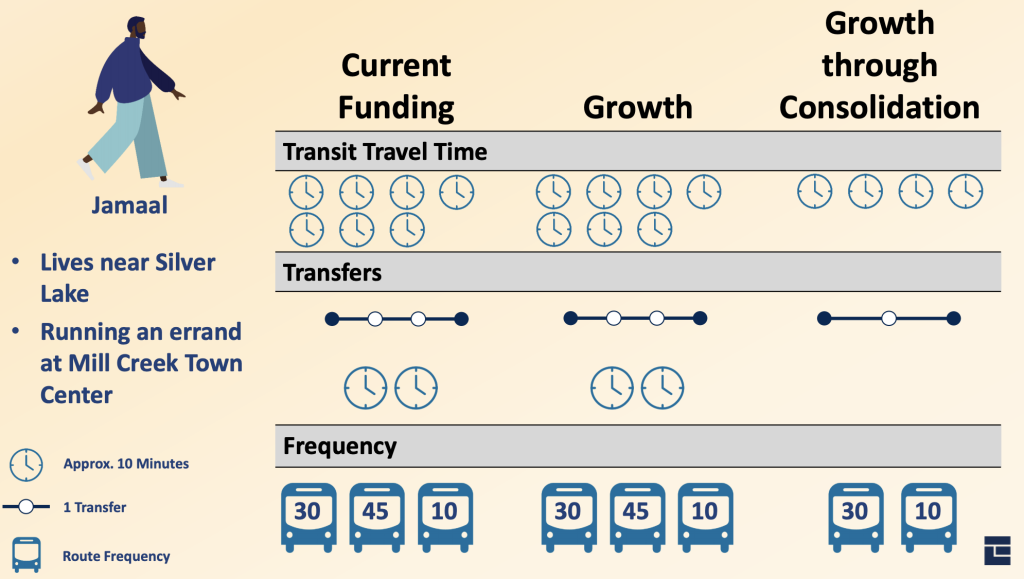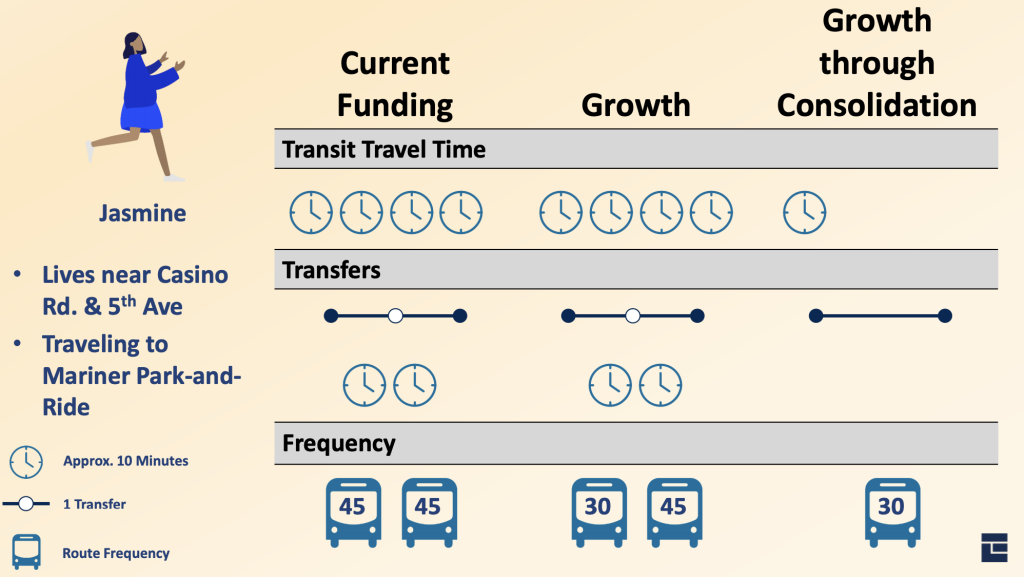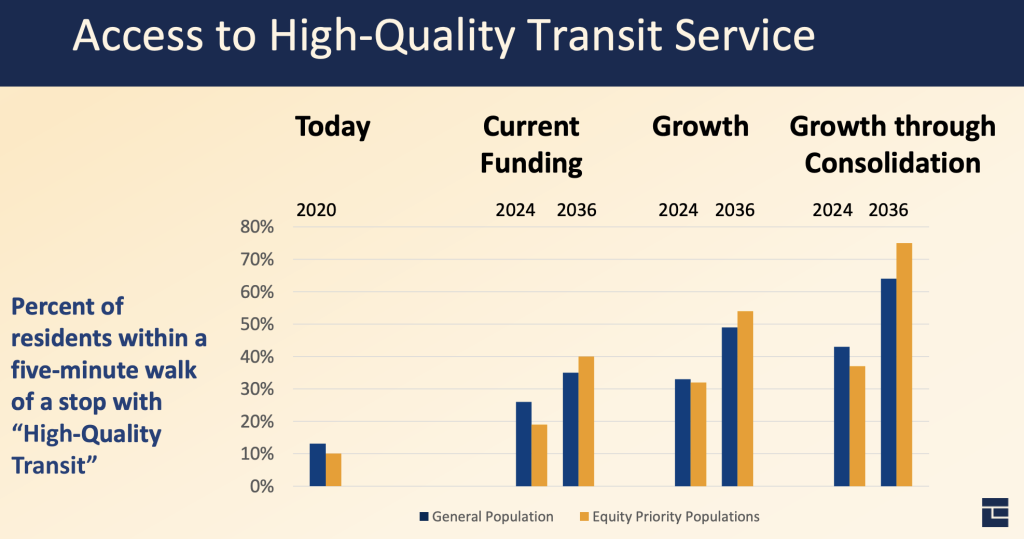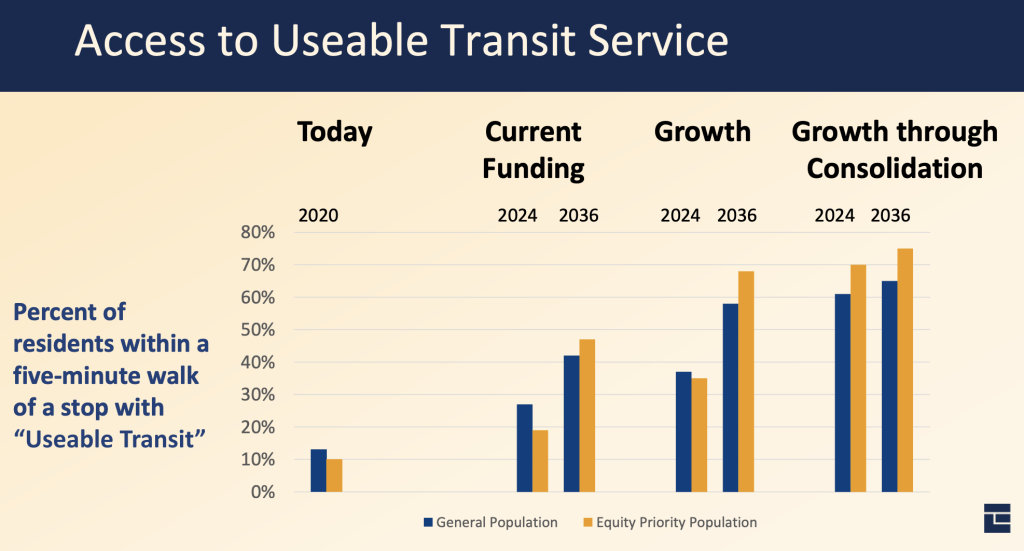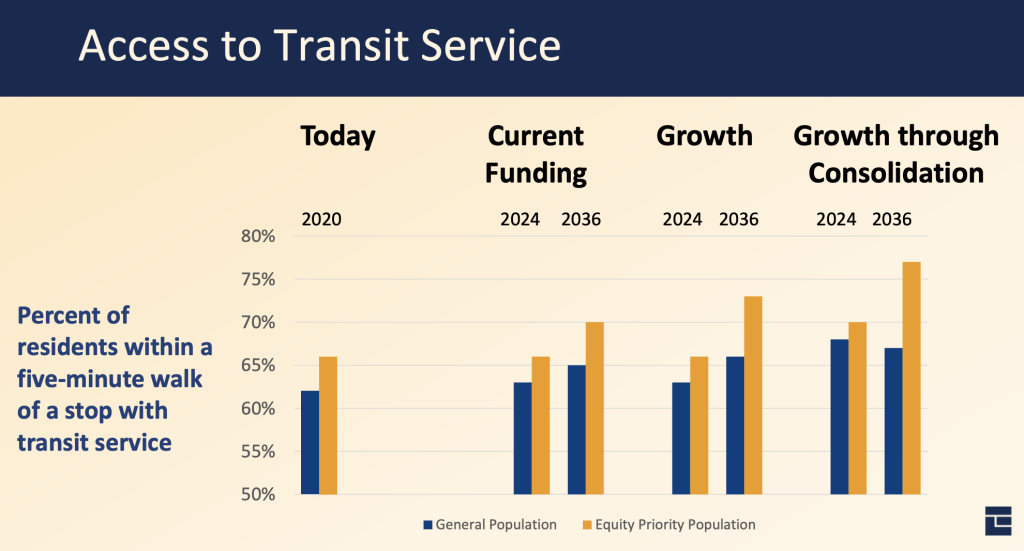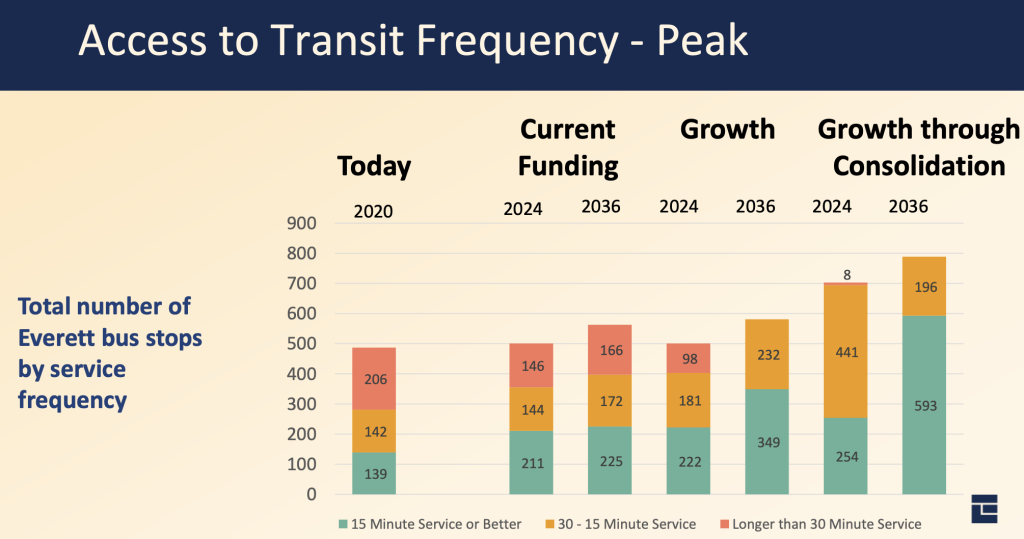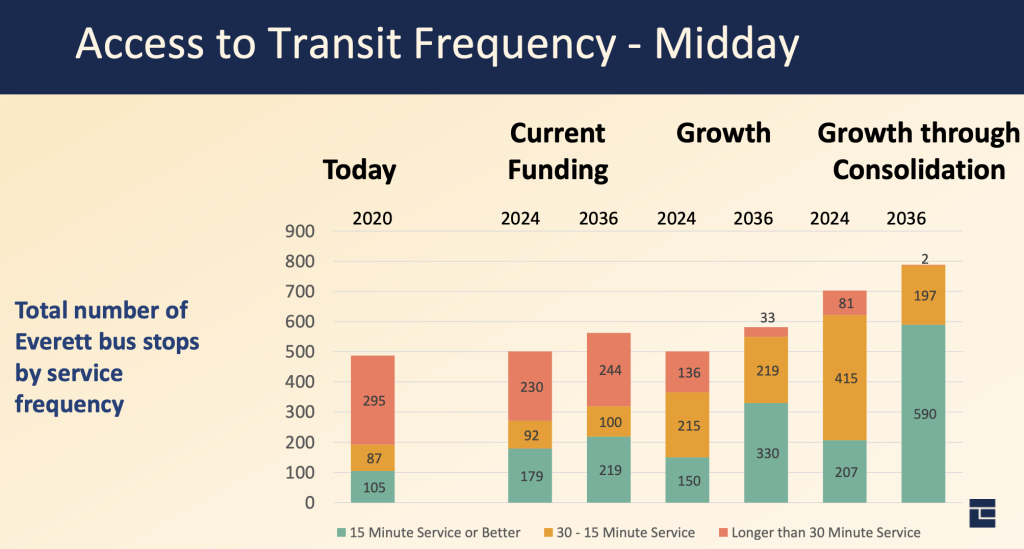A merger of Everett Transit with the large countywide provider Community Transit is still on table. That option was first formally proposed last summer by the agency when the “Rethink Transit” process began, but had been floated as a possibility before. The proposal is meant to provide an option for significant service growth in the city and better integration across jurisdictional boundaries. Neither could be achieved by the agency on its own.
Everett Transit has long operated as a city transit agency, primarily in the city limits of Everett and predating its county counterpart Community Transit. For decades, there was a real benefit of the transit agency operating on its own. But as the county and Everett have grown, Everett Transit’s fiefdom has far outgrown its useful purpose to the serious detriment of the people it is supposed to serve.
What the alternatives are
As part of the Rethink Transit process, Everett Transit is proposing three primary alternatives for the future of transit in Everett. These include a largely status quo “current funding” alternative, modest “growth” alternative, and robust “growth through consolidation” alternative. The alternatives are distinguished as follows:
- The current funding alternative would essentially lock Everett Transit into its pre-pandemic service levels. The agency would not have the kind of resources to substantially increase service levels to much beyond the levels seen before the 2018 restructure. Any small service improvements would still be years away, leaving the service restorations coming this month in place for the foreseeable future. This alternative is based on the existing 0.6% sales tax.
- The growth alternative would allow for a modest level of service growth over a 10-year period. The agency says that this would include increased frequency and span of service for mornings, evenings, and weekends. This alternative would allow gradual expansion of the fleet and facilities, but it would require Everett voters to approve a sales tax increase of up to 0.3%. If approved, that could bring the total local transit sales tax to 0.9%, the maximum rate permitted under state law.
- The growth through consolidation alternative would require Everett Transit to merge with Community Transit and allow for the largest and quickest service growth in Everett. This would also have spillover benefits to communities due to the efficiencies that operations across borders would provide. The alternative would greatly increase service frequency across Everett, bring more local service to neighborhoods, reduce travel times significantly, and deeply extend the span of service for mornings, evenings, and weekends. The agency says that the greatest service improvements would happen during the first two years from the merger. The alternative is predicated on a 0.6% sales tax increase to the 1.2% rate that Community Transit already collects in its service area. Everett voters would also have to vote for the sales tax increase to effectuate the merger.
The agency has put out a short video highlighting how the alternatives would work:
What the service quality would look like by alternative
Everett Transit has several neighborhood examples of how the differing alternatives would impact riders by geographic area. Generally, riders benefit from fewer transfers, shorter wait times, and faster travel times under the growth, and growth through consolidation alternatives with the latter being the most beneficial across geographic areas and trip pairing. In some cases, the growth through consolidation alternative could cut travel times by 75%.
Drilling down into specific dimensions across alternatives and time periods, Everett Transit is also able to show how these alternatives stack up.
Looking at access to frequent transit, high quality transit within a five-minute walk, the agency indicates that only about 25% of the general population would be able to reach this transit type under the current funding alternative in 2024; that increases to about 35% by 2036. The growth through consolidation alternative would get to 40% by 2024 and nearly 65% by 2036.
As for access to frequent transit during peak times, the current funding alternative would only provide 15-minute-or-better service to 225 bus stops by 2036–a modest change from the 211 bus stops assumed in 2024. The growth through consolidation alternative, however, would increase access to this type of service to 593 bus stops by 2036.
While there is a real cost to Everett taxpayers with the growth through consolidation, the modest sales tax increase and merger with Community Transit will mean vastly superior transit service–the kind of service that Everett residents could have gotten a decade ago had a merger been carried out after the Great Recession. Now is the time to push Everett forward to a better and more solid transit future. Public feedback on the proposals is open through April 5th via an online survey and open house.
Stephen is a professional urban planner in Puget Sound with a passion for sustainable, livable, and diverse cities. He is especially interested in how policies, regulations, and programs can promote positive outcomes for communities. With stints in great cities like Bellingham and Cork, Stephen currently lives in Seattle. He primarily covers land use and transportation issues and has been with The Urbanist since 2014.


